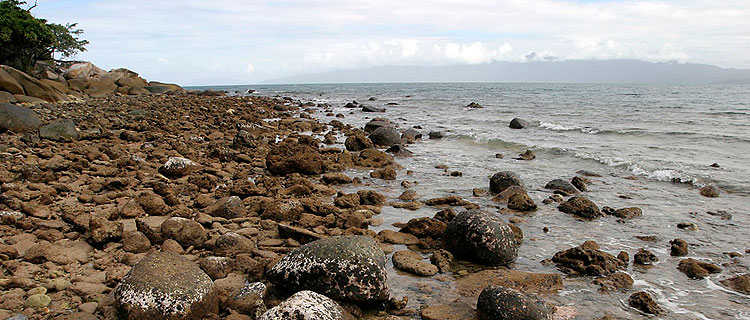
Lock, stock and too many feedbacks
New research looks at how to unlock feedbacks that keep marine ecosystems in undesired states
It's a vicious circle: overfishing, eutrophication (nutrient overload) and climate change have caused marine ecosystems such as coral reefs, kelp forests and oyster reefs to degrade to the extent that the systems are no longer able to provide ecosystem services so crucial for human well-being.
To top it all, such degraded ecosystems may be slow to revert to their original state. This is because ecological side effects - or feedbacks - reinforce the degraded state, meaning that the ecosystems become locked into degraded conditions.
The bane of managers and policy makers
In a new study published in Ecosystems, several of the centre's experts on marine systems governance have tried to come up with strategies on how to avoid or revert degraded ecosystems in the oceans.
Lead by Magnus Nyström, they studied marine ecosystems like coral reefs, kelp forests and oyster reefs. By learning more about the interactions between different feedbacks, Nyström and his colleagues could assess how successful current management has been incorporating feedbacks in strategies.
"Ecosystems locked in a degraded state is the bane of many managers and policy makers because we know too little about how feedbacks behave and interact with each other. Similarly, we don't know enough about how to break them," says Magnus Nyström.
Coral reefs a prime example
Take coral reefs, for instance. Loss of coral reefs is repeatedly associated with shifts from coral to macroalgal dominance. Increased algae domination generates a number of feedbacks: algae pre-empt space and increase sediment retention which reduces coral growth and prevent the settlement of coral larvae.
Furthermore, the algae can transmit diseases, which can lead to coral mortality, disease transmission and enhanced microbial activity. Overfishing of algal consumers such as the herbivorous (algae grazing) fish and sea urchins can increase the presence of algae.
"Overfishing of herbivores means that proportionally fewer herbivores graze per reef area. This in turn increases the likelihood for macroalgae to recruit and proliferate," Nyström explains.
Get by with a little help from nature
Despite the struggle to find the silver bullet, coming up with actions that can deal with unwanted feedbacks is by no means impossible. Recent signs of recovery in for example over-exploited coastal ecosystems indicate that profound changes are not irreversible.
And with a bit of help from nature itself things might just turn right, Nyström explains.
"Breaking feedbacks in degraded ecosystems could benefit from naturally occurring events such as storms or hurricanes which could temporarily lead to a shift of ecosystem processes. Such ideas have been proposed for forest ecosystems where exceptionally wet El Niño-years could help break feedbacks that lock the ecosystems in a degraded, dry state," Nyström explains.
As for human efforts, the authors suggest that more focus needs to be channeled toward understanding what can help break unwanted feedbacks. Management should move away from focusing on single feedbacks and address multiple ones in tandem. Because of its complexity, this will require an adaptive management approach based on learning by doing.
Another prerequisite for improved management is better understanding of how feedbacks in natural systems interact with socioeconomic factors. For example, research in Kenya shows that fishing efforts among the poorest increased together with a switch toward more effective (but destructive) fishing gear. These gears have had significant impacts on the ecosystem which in turn reinforces ecological feedbacks.
Windows of opportunities
But management strategies will also need to capitalise on opportunities that arise from nature itself. For instance, if grazers are removed and seeds dispersed on degraded land before a predicted El Niño-event arrives, it increases the likelihood that the land will become more resistant to drought and grazing in the future.
"The idea of windows of opportunity as facilitators for change is novel but we are still far from a comprehensive understanding. But there is much potential provided if we manage to identify and predict these events. Then management can prepare and harness the opportunity provided," Nyström concludes.
Source: Nyström M., Norström A., Blenckner T., de la Torre-Castro M., Eklöf JS., Folke C., Österblom H., Steneck RS., Thyresson M., Troell M. (2012) Confronting Feedbacks of Degraded Marine Ecosystems. Ecosystems, DOI: 10.1007/s10021-012-9530-6






